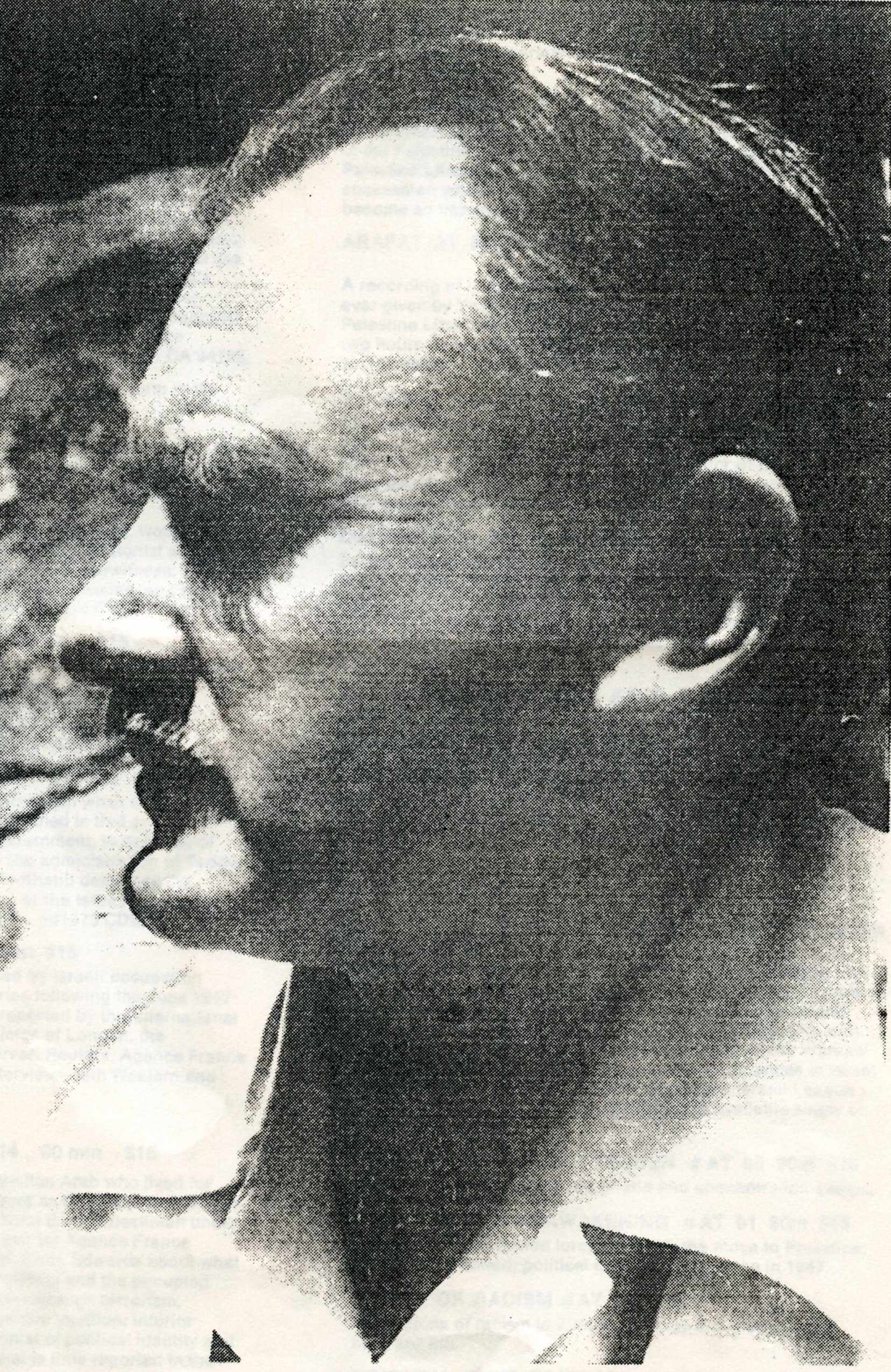Independent Collections
These collections were produced by independent journalists. Many of these recordings make up the bulk of the original collection of the Freedom Archives.
Subcollections
-
Colin Edwards Collection
Materials representing the life-work and journalism of a Welsh radio correspondent and journalist who worked for Pacifica stations, the BBC and many other broadcasters. -
Colin Edwards Free Speech Movement
This collection is produced by journalist Colin Edwards and represent a comprehensive account of the Free Speech Movement and its effect on the political climate of UC Berkeley. -
Programs produced by Kiilu Nyasha
Kiilu Nyasha is a revolutionary journalist and former member of the Black Panther Party. Kiilu still hosts Freedom Is A Constant Struggle, which now appears as a TV program. -
“Nothing is More Precious Than…” a news magazine including music and poetry
KPFA weekly news program running from 1973-1976 featuring in-depth coverage of liberation struggles around the world. -
“The Real Dragon” a news magazine including music and poetry
Real Dragon was a radio program broadcast on KPFA from 1971-1973. This news show focused on issues of national liberation, political prisoners, Vietnam and other major national and international topics.
Documents
6 Documents Found
Date: 6/8/1970Call Number: CE 175Format: 1/4 3 3/4 ipsProducers: Colin EdwardsProgram: Israeli OccupationCollection: Colin Edwards Collection
Accounts of atrocities committed against Arabs, Christians, and Palestinians since the beginning of the Israeli occupation in 1948. Includes graphic descriptions of torture in Israeli prisons, mass arrests of Arab men, collective punishment of Arab villages, demolition of homes, curfews in occupied territories, IDF looting private homes and businesses, Israeli refusal to allow humanitarian aid into refugee camps and occupied zones, indiscriminate killings, bombings of villages.
Date: 6/8/1970Call Number: CE 176Format: 1/4 3 3/4 ipsProducers: Colin EdwardsProgram: Israeli OccupationCollection: Colin Edwards Collection
Accounts of atrocities committed against Arabs, Christians, and Palestinians since the beginning of the Israeli occupation in 1948. Includes graphic descriptions of torture in Israeli prisons, mass arrests of Arab men, collective punishment of Arab villages, demolition of homes, curfews in occupied territories, IDF looting private homes and businesses, Israeli refusal to allow humanitarian aid into refugee camps and occupied zones, indiscriminate killings, bombings of villages.
Date: 12/8/1964Call Number: CE 706Format: 1/4 7 1/2 ipsCollection: Colin Edwards Free Speech Movement
The discussion revolved around the proposal of the senate's academic freedom committee endorsing the Free Speech Movement's basic positions on the disciplinary proceedings and the time, place, and content of speech and advocacy.
Lewis Feuer of philosophy and Nathan Glazer of sociology opposed the committee's proposal. Feuer offered an amendment that committed the university to nonintervention in matters of speech and advocacy only when they were "directed to no immediate act of force and violence."
Call Number: CE 751Format: 1/4 7 1/2 ipsProducers: Colin EdwardsCollection: Colin Edwards Free Speech Movement
Colin Edwards interviews three faculty members regarding the events of November 1966. Professor Peter Scott talks about football players working with the police and the role of non-students in the protest as well as explaining what that term actually means. Professor Zelnick talks about student, faculty, regent, administration views on the December 8th resolutions supposedly providing more power to the faculty and students for example regarding disciplinary issues.
Call Number: CE 752Format: 1/4 7 1/2 ipsProducers: Colin EdwardsCollection: Colin Edwards Free Speech Movement
Part 2 of Colin Edwards interview with three faculty members following the November 30th 1966 events. Professor Stocking talks about his definition of the term non-student, talks about the cultural situation on the Berkeley campus and how the administration continues to misread the culture, and that the leaders of the protests are some of Berkeley's best and brightest students. The interview concludes with conversations on student amnesty, police brutality, faculty divisions and the fear of UC Berkeley of outside political forces.
Date: 12/1/1966Call Number: CE 762Format: 1/4 3 3/4 ipsProducers: Colin EdwardsCollection: Colin Edwards Free Speech Movement
Reel 1 of audio from the the noon rally at which the strikers were to decide whether to continue the strike. Students and faculty as well as grad students speak at the rally, all of whom are essentially for continuing the strike. Robert Mundy from the strike committee talks about education, law, the administration, etc. Announcement is made that there was a rumor that Mario Savio would be arrested if he came on campus, so if he did come, he was to get the mic straight away before the police got him. A speaker from SDS talks about the Navy table incident. Hal Draper discusses demands, amnesty, Navy recruitment, and non-students. Dan McIntosh, president of the ASUC, talks about the ASUC vote to support the strike and announces support from the National Student Association. Bob Atkins from the AFT (TA union) talks about the effect of a labor union striking. Two professors (Rogen and Hearst?) speak on the role of faculty. At the end, the group votes to maintain the same demands.
6 Documents Found






